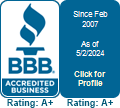Massachusetts Name Change Requirements
General Summary of Name Change Laws
The Courts are often willing to accept name changes for almost any legitimate reason. However, the granting of an application for change of name is discretionary with the Court. For an order/decree/judgment of name change to be granted, the Court must find compliance with the requirements of notice and the requirements for the allegations in the application. The Court must also find good and sufficient reason for the change, find the change consistent with the public interest and if the change of name is for a minor child, find that the change is in the best interests of the minor child.
You cannot change your/one's name for a fraudulent purpose, such as to avoid debts, you cannot change to a name that could affect the rights of another person, such as a celebrity, you cannot use a curse word, racial slur, obscene and/or an offensive word as part of your/one's name and you cannot change to a name that would cause deliberate confusion (for example, a name with punctuation and/or a number in it).
IMPORTANT NOTE: For name change actions, which involve a minor, our materials are strictly for use if both parents consent to the name change. If one parent does not consent, our materials are not appropriate. The applicant may wish to contact a local lawyer, bar association, etc.
Again, please remember, our name change materials are designed to cover simple, uncontested name changes ONLY.
General Summary of Name Change Laws in Massachusetts for an Adult
In Massachusetts, an adult may change their name by filing an action in the Probate Court (in the County where the person whose name is to be changed presently resides) with appropriate forms. The applicant/Petitioner should contact their local Court to obtain additional information about fees, the Court's address, etc. Some Courts are very picky about the way the documents must be presented. You should also contact the Court to obtain information about “local rules”. Our materials include a list of data to obtain from one's local courthouse. Additionally, a criminal record check will be done for all Petitioners over the age of seven (7). We instruct all applicants to ask the Clerk what the process is for doing this, as it may vary from Court to Court. Follow the directions of the Clerk/Court.
The Petition includes personal information as required by statute, such as the Petitioner's name, date of birth, place of birth, spouse's data (if applicable), the new name the Petitioner wishes to adopt, etc. NOTE: If the Petitioner is married, (s)he must have the written assent of his/her spouse to their change of name AND must file a certified copy of their marriage certificate. If the Petitioner is divorced, (s)he must file a certified copy of their divorce judgment along with their Petition. If the Petitioner is not married and/or does not have children, disregard the sections requesting information about a spouse and/or child(ren).
After filing the Petition and other appropriate forms and paying the required filing fee for such, the Court will schedule the Petitioner a hearing date. Additionally, a citation for publication and mailing will be sent to the Petitioner by the Court. You must arrange to have the citation published and mailed according to the instructions given in the Order of Notice on the citation. More detailed information and instructions regarding citation/publication can be found within our materials.
Unless someone has filed an action contesting your change of name, the Court is unlikely to hold a hearing. However, if you are required to attend a hearing, it is usually a very quick and simply proceeding. To find out if you will need to attend the hearing, contact the Court one (1) to two (2) days prior to your scheduled hearing date. Give the Clerk your docket number and ask if any written objections have been filed and whether or not the Court will be holding a hearing on your case.
At the hearing, the Court may take evidence from all interested parties and may examine, upon oath, the Petitioner or any other persons concerning the Petition. In the event that anyone files an objection to your request, your case will become contested and you are strongly urged to hire an attorney. If you do not retain an attorney you will have to represent yourself in a contested hearing.
The Court may grant or refuse the requested change of name. If the Judge is satisfied that the Petitioner has met the statutory requirements, and that the requested name change would be proper and not detrimental to the interests of any other person, the Judge will sign a Decree allowing the Petitioner to take the new name.




